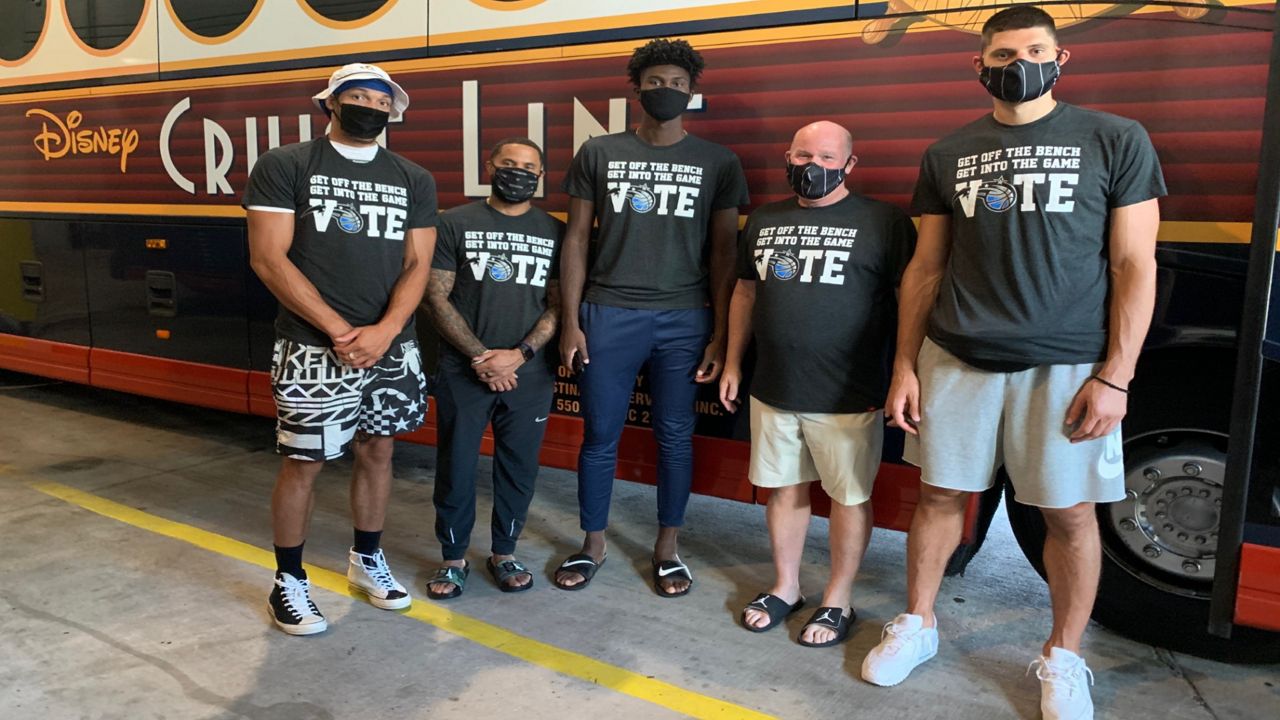ORANGE COUNTY, Fla. — Big basketball names like the Orlando Magic and Los Angeles Lakers star Lebron James are raising awareness and money for ex-felons’ ability to vote.
What You Need To Know
- The Orlando Magic are selling a T-shirt that encourages voting, to benefit voter rights
- More Than A Vote, a group of pro basketball players, donated $100,000 to the Florida Rights Restoration Coalition
- The rights group works to help end the disenfranchisement of ex-felons
- Kristen Adams, a "returning citizen," said she is out of prison but still feels restricted
The majority of Floridians decided to give those voting rights back at the ballot box when they voted to approve Amendment 4 in 2018. And while it could take more time to see those rights fully restored, the Orlando Magic and James’s More Than A Vote group are hoping to raise awareness and raise money to speed up the process.
The approval of Amendment 4 was considered by many to be a turning point in Florida’s history.
“We created a pathway for 1.4 million people to be able to vote," according to Desmond Meade, executive director of the Florida Rights Restoration Coalition. "Unfortunately, when politics got involved, a little over half of those people now face financial barriers.”
Meade led the charge to get the amendment passed, but soon afterward, the Florida Legislature passed a law requiring the previously convicted, better known as “returning citizens,” to pay restitution, fines and fees before they can register to vote. That law is tied up in the court system right now so the returning citizens can’t vote unless they make those payments first.
To help returning citizens get their rights restored now, the Orlando Magic is selling shirts to raise money for the Florida Rights Restoration Coalition, an organization that help end the disenfranchisement of the previously convicted. The message on the Magic’s shirt is designed to rally people to “get off the bench” and get out to vote.
In addition, James’s More Than A Vote organization donated $100,000 to help pay ex-felons’ fines and fees.
“To me, not having my voting rights is the equivalent of not being able to have a good job, not being able to make a decision in who I want to be the superintendent of my son or my daughter’s school," ex-felon Kristen Adams said.
Adams said she’s out of prison, but because of her court fees and fines, she feels like she’s still stuck in a cage. Until she makes all of those payments, she is unable to vote, unable to get a driver’s license, and unable to truly become a “returning citizen,” she said.
“No matter what I do in this community, no matter how much I volunteer, or I’m in church, or I’m a positive person, and have integrity. . . .I’m still being penalized because of what it looks like on paper," Adams said.
And Meade said it is unreasonable. “Inability to pay, or a person’s economic status should not have any bearing on their ability to participate in our democracy," Meade said.
Meade said after more than 30 years of being barred from the polls, he can’t wait to get back in the game.
“I am going to feel complete," Meade said. "I am going to feel like I am now actually a citizen, and not a second class citizen anymore.”
In the courts, the next hearing in the legal battle surrounding Amendment 4 with take place at the U.S. Court of Appeals for the 11th Circuit on August 18 in Atlanta.
The deadline to register to vote in the November election is October 5.
